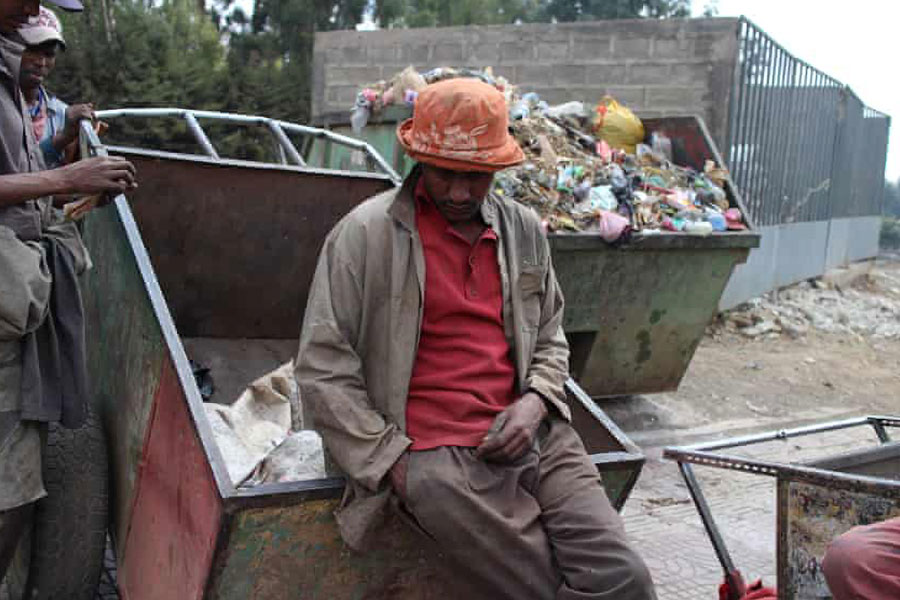
Aug 14 , 2021
By Halima Abate (MD)
There are diverse and distinct causes of prosocial behaviour. But it is the choices that one makes based on spiritual beliefs and values that most directly relate to the creation of certain lifestyle habits, and can last a long time, even a lifetime.
Spirituality helps us reason out the meaning of our lives, and paves a way to foster our purpose and direction. These are not expressed directly by religion, which is a personal awareness or conviction of the existence of a supreme being or supernatural power, and usually involves a faith overseen by institutions.
Spirituality, from its Latin form spiritus, meaning "breathing sense," reflects the beliefs and practices based on personal values and ideology of the meaning and purpose of life. It is a way of being and experiencing that comes through an awareness of a transcendent dimension. It designates the human longing for a sense of meaning through morally responsible relationships between diverse individuals, families, communities, cultures and religions. It involves contemplating making personal meaning out of situations, understanding oneself, and appreciating the importance of connections to others.
Spirituality – above and beyond religiosity – may be uniquely associated with greater compassion and enhanced altruism toward strangers. It may be that encouraging spirituality, rather than encouraging other aspects of religiosity, would lead to greater kindness, generosity, compassion, and altruism. Spirituality also helps people cope with illness, suffering and death, while influencing end-of-life decisions. All people, with or without a connection to organised religion or any spiritual practices, seem to benefit from finding a sense of meaning, purpose and connectedness.
Being a spiritual person does not mean adhering to a strict religion to reap the benefits. Neither does that have to be the focus. As spirituality rests upon an individual’s inner being, each person addresses it differently to get the meaning of life, find hope, leave a legacy and hang on to optimism. The social work profession has always shown a commitment to issues of human diversity and oppressed populations, which have some relationship to spirituality.
On the other hand, history shows that some parts of organised religion have played a negative or impeding role in social and political contexts. These may include the use of religious texts, policies and practices to deny human rights to persons of colour, women and people with sexual orientation different from the majority. However, at the same time, organised religion has a history of involvement in social justice movements and causes: civil rights movements, the peace movement, the women’s movement, the gay rights movement, abolition of the death penalty and the deep ecology movement.
It is thus up to observers to find the spirituality within them. Some do as such through religion, which is just as acceptable as long as it leads towards socially progressive causes. The choice of religion, or whether or not one chooses to practice it, is not a matter of contention to spirituality as a social value.
Spirituality can also deepen the debate about measuring subjective well-being and challenge the cultural hegemony of 'happiness' by focusing instead on upholding certain commitments and ideals about the good life, including a normative vision of human development – what it means for us to grow. Through spirituality and humanism, people can execute actions with a concern for other people within the social sphere; social spirituality being something done in the social domain by spiritual people.
Recognising and exercising the qualities of spirituality in maturing relationships and acquiring knowledge about ways to deal with matters of the human spirit gives rise to prosociality because of its strong association with compassion and concern for others’ welfare. As it enhances greater compassion and altruism, encouraging spirituality would lead to greater kindness, generosity, compassion, and altruism in our societies.
PUBLISHED ON
Aug 14,2021 [ VOL
22 , NO
1111]


Fortune News | May 27,2023

Covid-19 | Aug 08,2020

Viewpoints | Dec 10,2018

Verbatim | Aug 22,2020

Radar | Oct 10,2020

View From Arada | Oct 09,2021

Verbatim | Nov 23,2024

Viewpoints | Aug 06,2022

My Opinion | Jun 27,2020

Sunday with Eden | Oct 16,2020

Photo Gallery | 180449 Views | May 06,2019

Photo Gallery | 170649 Views | Apr 26,2019

Photo Gallery | 161702 Views | Oct 06,2021

My Opinion | 137283 Views | Aug 14,2021

Dec 22 , 2024 . By TIZITA SHEWAFERAW
Charged with transforming colossal state-owned enterprises into modern and competitiv...

Aug 18 , 2024 . By AKSAH ITALO
Although predictable Yonas Zerihun's job in the ride-hailing service is not immune to...

Jul 28 , 2024 . By TIZITA SHEWAFERAW
Unhabitual, perhaps too many, Samuel Gebreyohannes, 38, used to occasionally enjoy a couple of beers at breakfast. However, he recently swit...

Jul 13 , 2024 . By AKSAH ITALO
Investors who rely on tractors, trucks, and field vehicles for commuting, transporting commodities, and f...

Nov 1 , 2025
The National Bank of Ethiopia (NBE) issued a statement two weeks ago that appeared to...

Oct 25 , 2025
The regulatory machinery is on overdrive. In only two years, no fewer than 35 new pro...

Oct 18 , 2025
The political establishment, notably the ruling party and its top brass, has become p...

Oct 11 , 2025
Ladislas Farago, a roving Associated Press (AP) correspondent, arrived in Ethiopia in...

Nov 2 , 2025
The National Bank of Ethiopia (NBE) has scrapped the credit-growth ceiling that had s...

Nov 2 , 2025 . By SURAFEL MULUGETA
The burgeoning data mining industry is struggling with mounting concerns following th...

Nov 2 , 2025 . By YITBAREK GETACHEW
Berhan Bank has chosen a different route in its pursuit of a new headquarters, opting for a transitional building instea...

Nov 2 , 2025 . By BEZAWIT HULUAGER
Nib International Bank S.C. has found itself at the epicentre of a severe governance...